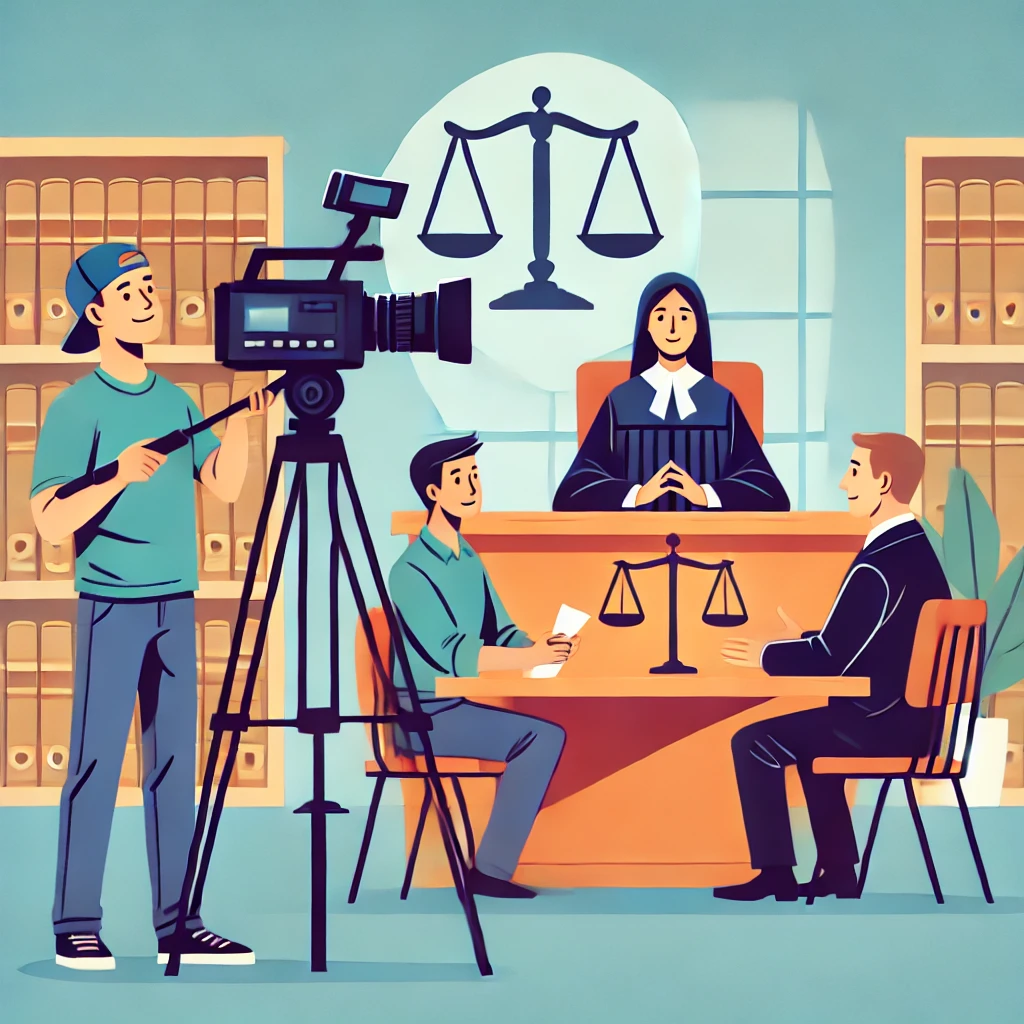Why Legal Videography Is Crucial for Modern Lawsuits Processes
Why Legal Videography Is Crucial for Modern Lawsuits Processes
Blog Article
Important Facets of Legal Videography for Effective Documents
Legal videography plays an essential duty in the paperwork of crucial occasions within the justice system, where accuracy and clearness are critical. Key facets such as the deployment of high-def video cameras, adherence to legal standards, and effective area scouting dramatically affect the high quality and reliability of the video footage. Furthermore, a videographer's expertise and focus to information can greatly enhance the evidentiary worth of the recorded material. As we discover these vital components, it becomes obvious that the nuances of this practice can have far-ranging effects for legal end results. What might those implications require?
Relevance of Legal Videography
Lawful videography plays a crucial function in the judicial process by offering a reputable visual record of testaments, depositions, and other significant events. This aesthetic paperwork serves numerous crucial functions, most significantly enhancing the trustworthiness of evidence provided in court. Unlike written records, video clip recordings record non-verbal hints, such as body language and psychological reactions, which can substantially affect a jury's assumption of a witness's reliability and truthfulness.
In addition, legal videography aids in protecting the integrity of complicated situations, making sure that subtleties are accurately represented. This becomes specifically essential in cases involving expert testament, where aesthetic help can illuminate complex ideas that might be challenging to convey with message alone.
Furthermore, using videography can improve trial proceedings. By enabling jurors to view recordings as opposed to counting solely on online testament, the process can become much more reliable and much less at risk to misinterpretation.
Technical Requirements
To efficiently catch top notch video clip in a lawful setup, certain technical requirements need to be met. Most importantly, the choice of video camera is important; it ought to possess high-def capacities, ideally 1080p or higher, to make sure clarity in visual paperwork. Additionally, the video camera should have a trustworthy zoom function to catch details from different distances without endangering photo high quality.
Lighting is another critical element. All-natural light is favored, yet supplemental illumination might be required to eliminate darkness and make sure all participants are properly illuminated (Legal Videography). Soft, diffused lighting can aid produce an expert look while preventing rough contrasts

Lastly, steady recording equipment is vital. A tripod or other stabilization equipment need to be utilized to prevent unstable video footage, which might take away from the expertise of the documents. Satisfying these technological requirements will significantly enhance the top quality and efficiency of legal videography.
Conformity and Legal Specifications
In the world of lawful videography, adherence to conformity and lawful criteria is vital to ensure the integrity and admissibility of documented products in court process. Lawful videographers must be skilled in the pertinent legislations and regulations controling the documents of evidence. This includes recognizing the rules of proof, which dictate just how video clip recordings can be used in court, along with personal privacy regulations that protect the civil liberties of people recorded on video.
Additionally, videographers should acquire proper permission from all celebrations associated with the recording process. This not just promotes openness however likewise safeguards versus potential lawful effects. Compliance with state-specific regulations is equally important, as the legal landscape differs substantially across jurisdictions.
In addition, preserving high requirements of technological quality is vital, as inadequate audio or visual high quality can bring about challenges regarding the integrity of the video. Videographers should also maintain precise records of the chain of safekeeping for all video clip products, guaranteeing that they can show the credibility and honesty of the recordings if questioned in court. Fundamentally, conformity with lawful standards creates the structure of trusted and effective legal videography.
Best Practices for Videographers
Complying with conformity and lawful standards develops a solid foundation for reliable legal videography, but finest methods additionally improve the top quality and dependability of recorded materials. To start read what he said with, videographers should click site utilize premium devices, consisting of video cameras with sufficient resolution and audio catching tools that reduce background sound. This makes certain clarity in both aesthetic and auditory components, which is vital for legal documents.
Second of all, proper lighting is important to prevent shadows or too much exposure, thereby maintaining the honesty of the footage. Videographers should look the location in advance to figure out ideal lights problems, adjusting as needed.
Furthermore, cautious framework and make-up are important. Subjects ought to be centered within the framework, and any type of relevant materials or exhibits ought to be plainly visible. This not only help in quality yet likewise assists in conveying context throughout legal procedures.
In addition, keeping a neutral attitude and preventing individual prejudices while taping boosts the professionalism of the videographer. Finally, focus to detail in modifying, including smooth changes and clear labeling of files, makes sure that the end product is not just refined but additionally easy to browse for legal teams. Complying with these best practices ultimately supports the goals of legal documents.
Enhancing Evidentiary Value
Enhancing the evidentiary value of legal videography calls for a tactical strategy that focuses on both authenticity and clearness. Legal videographers should make sure that the video documents properly reflects the occasions, statements, or problems being videotaped. This starts with the option of high-quality tools that records clear sound and visual elements, reducing distortion or interference that may threaten credibility.
Additionally, thorough interest to information is vital. Videographers must establish a stable cam placement, make use of appropriate lighting, and stay clear of any type of unnecessary edits that can be viewed as changing the initial material. Keeping a neutral perspective throughout recording aids maintain the credibility of the proof.
Furthermore, appropriate documentation of the recording procedure-- including day, time, place, and any type of pertinent contextual information-- can substantially strengthen the evidentiary weight of the video. This metadata serves as an important reference point for authenticity.

Conclusion

Lawful videography plays an essential role in the paperwork of vital occasions within the justice system, where accuracy and quality are paramount.In the realm of legal videography, adherence to compliance and lawful standards is vital to ensure the stability and admissibility of recorded materials in court procedures. Legal Videography. In significance, compliance with lawful criteria creates the foundation next page of efficient and dependable lawful videography
Sticking to conformity and legal requirements develops a strong structure for efficient legal videography, but ideal practices even more enhance the top quality and dependability of taped materials.In final thought, the relevance of legal videography lies in its ability to offer clear, trusted documents for legal process.
Report this page